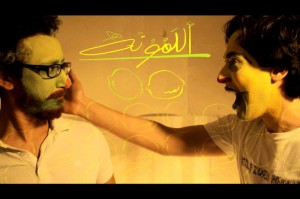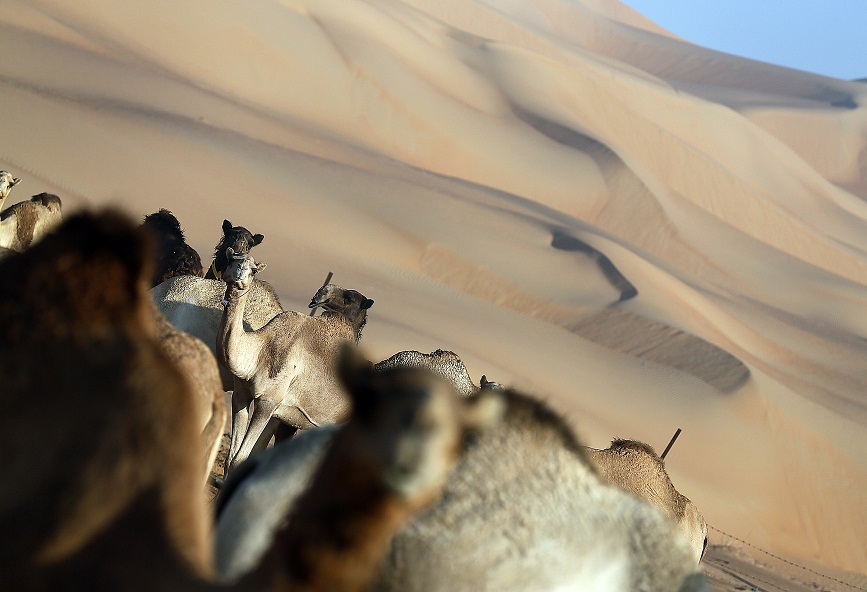
Courtesy of Ahmad Mostafa’s Facebook Page
Even since before the revolution, contemporary music has been flourishing in Egypt. In 2010, the Egyptian film Microphone uncovered Alexandria’s underground music scene, and the success of Egyptian bands like Wust El Balad and Masar Egbary has encouraged more bands to emerge on the national scene.
YouTube has become crucial to Egypt’s fast-changing and energetic music scene. Instead of being a secondary medium to television and radio, YouTube has become the main broadcasting medium for many artists. One song made famous by YouTube is El Lamoona, ‘the lemon’.
The song was published the day before yesterday on YouTube, and expresses widespread disappointment in Morsi’s presidency. The song’s title comes from an Egyptian idiom involving squeezing a lemon on yourself when doing something that you don’t want to do, but have to. During the elections, the idiom was used by many people to describe voting for Morsi.
The song begins: “We squeezed a lemon and were given soap [and we were tricked]. We know that the Muslim Brotherhood is not to be trusted. They swore and promised, and quickly sold [betrayed] us.” The song’s message is apparent; its composers are not happy with the current president or his political affiliations. We contacted one of the song’s composers, Ahmad Mostafa, to shed light on his creation.
“I have recently started learning how to play the oud and always wanted to compose something that sounds a bit more Egyptian rather than the rock-styled tracks I have composed before, like Fakhamet el Ra’ees [His Excellency, the President] with Hany Adel, or Dawar Benafsak [Search for Yourself] also with Hany Adel, and Ana Mawgood [I am here] and Saket [Silenced] For City Band,” says Mostafa.
He explains that the song’s idea came to him by accident: “Being a young Egyptian who was involved in the revolution, it is always on my mind wherever I go and whatever I do. For this song, I was waiting for a friend of mine in Maadi, and I was just playing around with some tunes and singing in the street.
Then I found myself saying “we a’asarna lamoona, fa akhadna saboona [we squeezed a lemon and were given soap]” and I thought, wow, that sounds pretty cool. This is when I called Ahmad El Haggar who has wonderful Arabic vocals, and is a good friend of mine, to tell him about the song and its idea. He showed interest right away.”
The song combines the oriental sound of the oud with the contemporary riffs of the guitar, along with Egyptian percussion. This nice mixture of instruments makes the song sound both familiar and folkloric. The song also draws on the usual descriptions of the president, such as being a spare president [second choice to disqualified presidential candidate Khairat Al Shater] and one that belongs to a clan [often said by Morsi himself].
“I finished the melody with Haggar and we contacted Waleed Abdel Men’em to write the lyrics for it. In a couple of days, we were done with the song,” Mostafa said. However, they did face a challenge: “The hardest part was the song’s video as I hadn’t settled on how to shoot it.
So, I contacted Mohammed Khaled who also directed Ana Mawgood [I am here] for City Band, which was the best underground music video in 2012 according to Al-Ahram online. Khaled had his own way of seeing the video so we just shot the video, and he added the animation later on. I hadn’t seen it till it was out today.”
When asked about the musical inspiration for the song, Mostafa mentioned two Egyptian greats. “As far as the inspiration for the tunes, as I mentioned before, I am learning the oud and I love Egyptian music. So, I wanted to compose something that sounds Egyptian with a little twist, so that more people can relate to it.
It is in the scale of C Rasd, a very popular Arabic scale which is well-received by Egyptians. Also, the tunes sound sarcastic, reflecting perfectly the mood of most Egyptians. I thought it should sound a bit more like Sayed Mekawy’s or Sheikh Imam’s songs, but in my very own way. It was a trial and I think it worked out pretty well,” explains Mostafa.
Mostafa believes that art is meant to fight injustice: “Art is always the best way to fight a system, and I think being an artist now is a responsibility, you have to be responsible for relaying how people feel or how you see Egypt.”
He also has some strong opinions on the current Egyptian president. “We cannot allow Morsi and the Ikhwan[Muslim Brotherhood] to neglect other Egyptians who have different opinions to theirs. It is a shame and it is worse than what Mubarak was doing.”
Mostafa describes the effects of the revolution as liberating. “We found hope in ourselves again during the first 18 days, and we found ourselves owning the country and ready to change. Really, you could smell freedom in the air! We cannot allow Morsi and his buddies to come and take away this hope that we found in ourselves as Egyptians.”
Finally, Mostafa shares some further thoughts on the song’s message. “They have to learn that there will always be an opposition, there will always be jokes, there will always be articles written, and there will always be graffiti on the walls. This is the message I am sending, I will fight with art, and I hope I can make people realise that the Muslim Brotherhood needs to accept living in this country with others; Egypt fits us all in, and we can all live together. Till they accept that, we will keep on fighting.”



